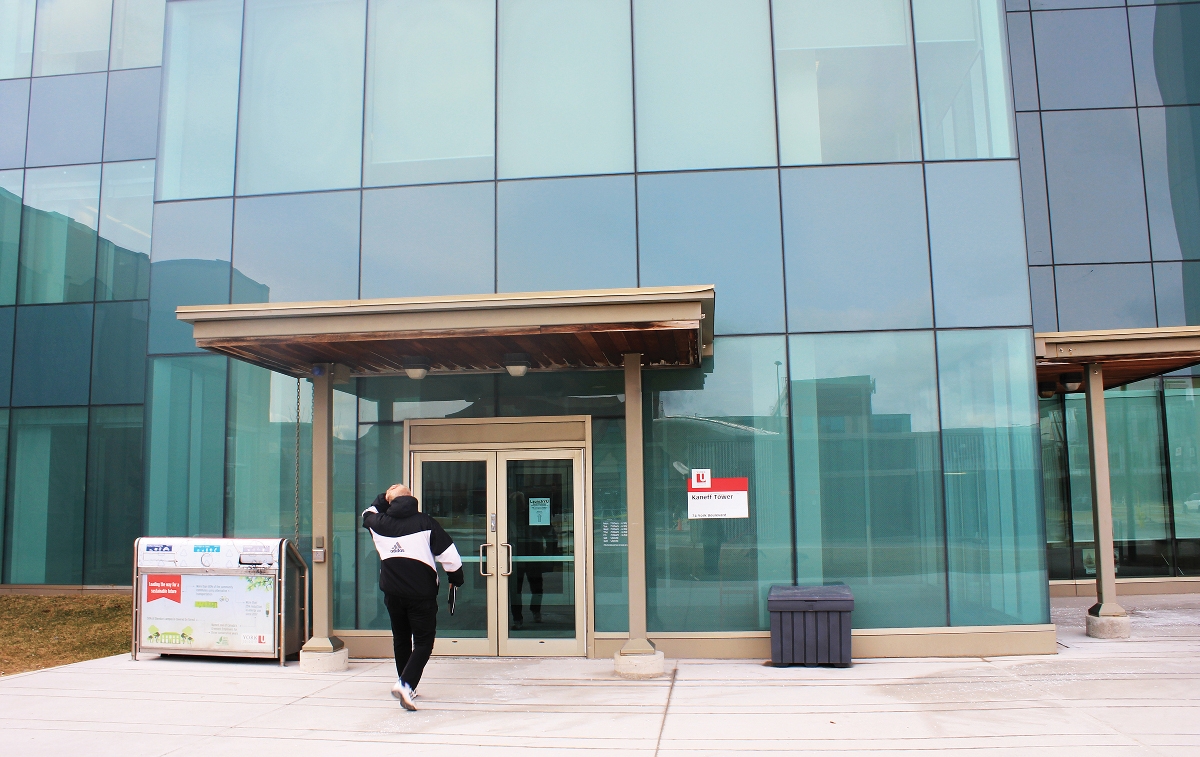Munirul-Haq Raza | News Editor || Dennis Bayazitov | Assistant News Editor
Featured image: The Winter drop deadline for some courses has been extended. | Basma Elbahnasawy
Thursday last week, York’s Senate Executive Committee (SEC) called for a special Senate meeting to discuss a motion for action put forth by Senators Richard Wellen and Mina Rajabi Paak “to immediately suspend all classes in the university, with minor exceptions for specific circumstance to be determined by the Senate Executive, for the duration of the Canadian Union of Public Employees (CUPE) local 3903 strike.”
After Senate Chair Lesley Beagrie announced the motion had been deferred, Wellen immediately requested to challenge. On several occasions, the Chair reminded the Senate the motion had been deferred, and that the meeting was purely to discuss the Senate’s goal and jurisdiction in the event of a strike.
Wellen and Paak retorted the SEC has no right to do so—that they are only able to rule it out of order, or accept it. Beagrie underlined, “no motions, and no other business would be part of the special meeting.”
As the meeting progressed, it was clarified that on page 50 of the Senate Hand book, under Responsibilities Bearing Senate Agenda A, item III read: “The Senate Executive Committee will ensure that motions placed before the Senate are clearly expressed and documented. In exercising this responsibility, the Executive Committee may delay a motion—pending clarification of the wording of the motion provision of further documentation, for elaboration of rationale.”
The Senate chamber saw contest on the issue. Wellen and Paak repeatedly insisted on calling a vote to see if the Senate would vote in favour of Wellen’s challenge of SEC’s decision to defer, which appeared to garner senate support. Beagrie reiterated on repeatedly that no voting, nor debating, was to be held at a special meeting. Eventually, the SEC displayed a message on the screen before the Chamber, which read: “A Senator has challenged the decision made by the Executive Committee to defer consideration of motions. Do you agree with this challenge?”
When Vice Chairman Franck van Breugel called for a vote, the count revealed 53 Senators in favour, and 54 Senators who opposed. The SEC recommended recounting the vote row-by-row, to which many Senators objected on the grounds of “intimidation.” No recount was called. The SEC said they would revisit the discussion at their March 13 Executive Committee meeting.
According to Barbara Joy York Media Relations chief spokesperson, “The Executive Committee of Senate extended the Winter term Course Drop Deadline date and Course Withdrawal (W transcript notation) Period for Winter term courses. There is no adjustment for courses for which the Winter term drop date fell prior to March 5.”
Joy adds: “We are actively monitoring the impact of the strike on students. We will continue to keep students updated on the strike, and any progress made by the parties to reach an agreement.
“The University remains open and all classes that can continue, will continue. Libraries, residences, restaurants, other food outlets, administrative offices, and other university facilities will also remain open.
“Some classes, labs, and tutorials will have to be temporarily suspended. Decisions regarding suspending classes, labs, and tutorials will be made on a case-by-case basis, and as circumstances require. The University will accommodate and support all students, including those whose studies are interrupted.”
Joy adds: “We are encouraging any student who may have had classes cancelled to keep up with their studies.”
The York website on labour negotiations, under their Students FAQ section, noted: “Senate policy outlines the rights and responsibilities of students during a strike, and provides students with the choice not to participate in their academic activities. For those making this choice, it provides immunity from penalty, reasonable alternative access to materials covered during their absence, and reasonable extensions of deadlines. These rights do not relieve the student of the responsibility for mastering materials covered, nor guarantees students the same learning experience that they would have received.”
There was disagreement between Senate Members over whether the strike constituted an emergency, and therefore whether the Senate has the authority to suspend classes—however, this has led to some York University Faculty Association members considering a lawsuit against York.
UPDATE: After the time of publication, York released a follow-up statement to the March 13 Senate meeting, which stated that all classes that had been running during the strike would complete their material and exams on time by April 23. A secondary exam period would be scheduled for classes affected by the strike.




